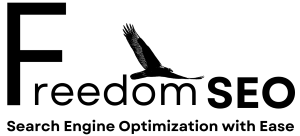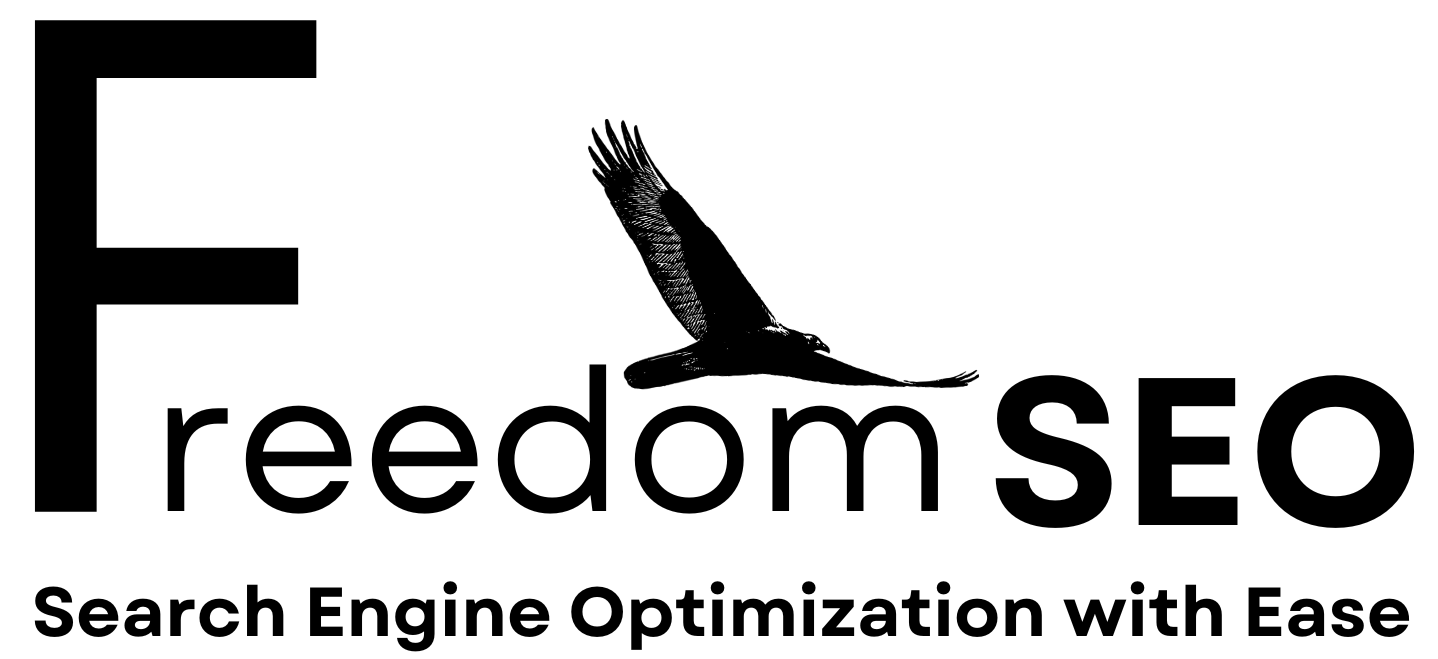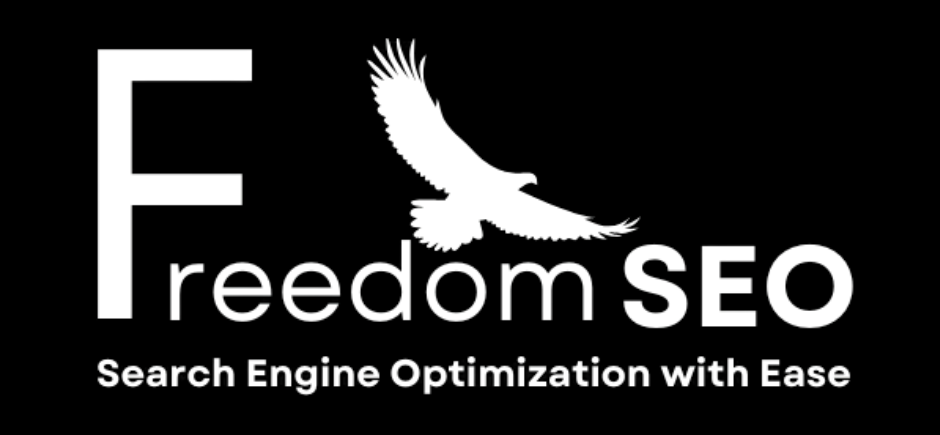Understanding How Search Engines Work for Business Owners
Search engines do not just sift through millions of pages—they shape who gets seen online. Over 90 percent of online experiences begin with a search engine and what pops up first actually has nothing to do with chance. Plenty of business owners focus on flashy web design or social media, but the real power lies in understanding how search engines decide what gets attention. That secret is what puts some websites in the spotlight while others never get a glance.

Table of Contents
Quick Summary
| Takeaway | Explanation |
|---|---|
| Understand search engine components | Familiarize yourself with crawling, indexing, and ranking to enhance information discovery. |
| Optimize for user intent | Create content that aligns with what potential customers are searching for, improving visibility and relevance. |
| Focus on quality and credibility | Develop high-quality content and build authoritative backlinks to improve website ranking and trustworthiness. |
| Adapt to algorithm changes | Stay informed about evolving search engine algorithms to ensure your digital strategies remain effective and competitive. |
| Implement SEO as a continuous process | Treat SEO as ongoing work; continuously optimize to adapt to changes in user behavior and technological advancements. |
What Are Search Engines and Their Purpose?
Search engines are sophisticated digital tools designed to help users discover, retrieve, and navigate information across the vast landscape of the internet. At their core, these technological platforms function as powerful information retrieval systems that connect people with relevant online content through complex algorithmic processes.
To help clarify the three main mechanisms behind search engines, the table below summarizes their functions and roles in the information retrieval process.
| Component | Description | Role in Search Engines |
|---|---|---|
| Crawling | Automated software systematically browses websites, following links and discovering pages | Discovers new and updated content |
| Indexing | Collects and organizes discovered web page information into a searchable database | Stores and categorizes information for future retrieval |
| Ranking | Evaluates and sorts web pages based on relevance, quality, and user intent | Determines the order of web pages in search results |
The Fundamental Components of Search Engines
Search engines operate through three primary mechanisms that enable efficient information discovery:
- Crawling : Automated software programs (called web crawlers or spiders) systematically browse websites, following links and discovering new web pages
- Indexing : Collecting and organizing discovered web page information into a massive, searchable database
- Ranking : Evaluating and sorting web pages based on relevance, quality, and user intent
Learn more about SEO fundamentals that help businesses understand how these digital systems work.
Purpose and Business Significance
For business owners, understanding search engines is crucial. According to research from the University of Nebraska-Lincoln , these platforms provide structured access to information, enabling users to quickly find relevant content. This means when potential customers search for products or services, search engines determine which websites appear and in what order.
The primary purposes of search engines include:
- Connecting users with the most relevant and high-quality information
- Providing a streamlined method for discovering digital content
- Offering businesses an opportunity to increase online visibility
- Helping users make informed decisions by presenting comprehensive search results
By comprehending how search engines function, business owners can strategically optimize their online presence, ensuring their websites are discoverable, credible, and appealing to both search algorithms and potential customers.
Why Understanding Search Engines Matters for Your Business
Search engines are not just technological tools but critical gateways that determine a business’s online visibility, customer reach, and digital success. For Canadian business owners, comprehending how these digital platforms function can mean the difference between being discovered by potential customers or remaining invisible in the vast online marketplace.
Digital Visibility and Customer Acquisition
In today’s digital economy, most consumers begin their purchasing journey through online searches. Explore our comprehensive guide to Google ranking to understand how search engines connect businesses with their target audience. According to Digital.gov , the majority of information searches start on commercial search engines, making digital discoverability a critical business strategy.
Businesses that understand search engine mechanics gain significant advantages:
- Improved website design optimized for search algorithms
- Higher chances of appearing in top search results
- More targeted organic traffic
- Enhanced user experience and credibility
Strategic Business Positioning
Search engines evaluate websites based on multiple factors including relevance, content quality, user experience, and technical performance. By understanding these criteria, businesses can strategically position themselves to attract more potential customers.
Key strategic benefits include:
- Developing content that directly addresses customer search queries
- Understanding customer search behaviors and preferences
- Creating websites that are technically sound and algorithm-friendly
- Building long-term digital marketing strategies aligned with search engine requirements

The digital landscape is dynamic, and search engines continuously evolve. Businesses that stay informed and adaptable can leverage these technological platforms to expand their reach, build brand awareness, and ultimately drive growth in an increasingly competitive online marketplace.
How Search Engines Index and Rank Web Pages
Search engines transform the massive, unstructured internet into an organized, searchable resource through intricate indexing and ranking processes. These complex systems enable businesses to gain visibility and connect with potential customers by systematically evaluating and presenting web content.
The Indexing Process
Learn about website optimization strategies that impact search engine performance. According to Carnegie Mellon University’s Web Best Practices guide , indexing involves several critical steps:
- Web crawlers systematically scan and discover new web pages
- Content is analyzed for relevance, quality, and structure
- Pages are stored in massive digital databases
- Metadata and keywords are extracted and categorized
Ranking Mechanisms
Ranking determines the order in which web pages appear in search results. Search engines use sophisticated algorithms that evaluate multiple factors:
- Content relevance and quality
- Website authority and credibility
- User engagement metrics
- Technical performance and site structure
- Backlink profile and external references
Businesses that understand these ranking criteria can strategically optimize their online presence. This involves creating high-quality, relevant content, ensuring excellent website performance, and building credible digital relationships through authoritative backlinks.
Below is a table that summarizes key factors affecting search engine ranking, helping business owners understand the strategic areas to target for better online visibility.
| Ranking Factor | What It Means | Why It Matters for Businesses |
|---|---|---|
| Content Relevance & Quality | How closely page content matches user search and its usefulness | Improves visibility for target searches |
| Website Authority & Credibility | Trustworthiness and influence based on backlinks and reputation | Boosts ranking and builds trust |
| User Engagement Metrics | Measures of how users interact with the site (e.g., bounce rate) | Indicates value to search engines |
| Technical Performance & Structure | Site speed, mobile compatibility, structure, and accessibility | Enhances user experience and SEO |
| Backlink Profile | Quality and quantity of external websites linking to the site | Signals authority and increases ranking |
The goal of search engine indexing and ranking is to provide users with the most accurate, useful, and trustworthy information possible. For businesses, this means continuously adapting their digital strategies to meet evolving algorithmic requirements and user expectations.
Key Components of Search Engine Algorithms Explained
Search engine algorithms are intricate systems designed to transform raw internet data into meaningful, relevant search results. These sophisticated mechanisms employ multiple complex components that work together to deliver precise and valuable information to users.
Core Algorithmic Elements
Discover SEO fundamentals for Canadian businesses that help understand algorithmic complexity. According to research from Google’s original architecture paper , search algorithms typically incorporate several fundamental components:
- Keyword relevance assessment
- Content quality evaluation
- Website authority measurement
- User interaction tracking
- Contextual understanding mechanisms
Ranking and Evaluation Processes
Search engine algorithms use sophisticated scoring systems to determine webpage importance and relevance. These systems analyze multiple factors simultaneously:
- Content depth and comprehensiveness
- External and internal linking structures
- Page loading speed and technical performance
- Mobile responsiveness and user experience
- Geographic and personalized search context
Businesses that comprehend these algorithmic nuances can strategically optimize their digital presence. By aligning website content with these complex evaluation criteria, organizations can improve their chances of achieving higher search rankings and increased online visibility.
The continuous evolution of search algorithms means that digital strategies must remain adaptive and responsive to emerging technological trends. Understanding these key components provides businesses with a competitive advantage in the increasingly sophisticated digital marketplace.

The Role of Search Engine Optimization in Visibility
Search Engine Optimization (SEO) is a strategic approach that transforms websites from digital invisibility to prominent online destinations. It represents a sophisticated method of aligning digital content with search engine algorithms to enhance visibility, attract targeted traffic, and ultimately drive business growth.
Strategic Visibility Enhancement
Explore DIY marketing strategies for Canadian businesses that can dramatically improve online presence. According to research published by the Association for Computing Machinery , SEO techniques systematically improve a website’s ranking by carefully optimizing multiple digital elements:
- Content relevance and quality
- Technical website performance
- Metadata and structural optimization
- User experience signals
- Authoritative external linking
Competitive Digital Positioning
SEO serves as a critical differentiator in crowded digital marketplaces. Businesses that implement comprehensive optimization strategies gain significant advantages:
- Increased organic search visibility
- Higher website credibility
- More targeted website traffic
- Enhanced user engagement
- Cost effective marketing approach
Successful SEO is not about manipulating search engines but creating genuine value for users. By developing high-quality, relevant content and ensuring technical excellence, businesses can organically improve their digital visibility and attract ideal customers through search platforms.
The digital landscape continues to evolve rapidly, making SEO an ongoing strategic investment. Businesses that view optimization as a dynamic, continuous process will consistently outperform competitors who treat it as a one-time technical exercise.
Stop Getting Overlooked: Take Control of Your Search Engine Visibility
Are you struggling with digital invisibility while your competitors get the calls and leads you deserve? The article highlighted how understanding indexing, ranking, and SEO is critical for business owners who want to appear in the top results instead of being lost in the shuffle. If your business is not showing up when local customers search, it is costing you real opportunities. Let us help you turn knowledge into action so your website and Google listings start bringing in the customers you want.

You do not have to navigate the complexities of search engines alone. Get your business noticed and start attracting more customers today by partnering with our Canadian SEO experts. Visit Freedom SEO now to explore our local SEO services for Canadian businesses or contact us for a custom plan that gets you ranked in the top 3 on Google. Make your next search result count—reach out now to unlock measurable results and sustainable growth.
Frequently Asked Questions
What are the primary functions of search engines?
Search engines primarily function through three mechanisms: crawling, indexing, and ranking. Crawling involves automated programs exploring the web to discover new pages. Indexing organizes this content into a searchable database, and ranking evaluates and sorts web pages by relevance, quality, and user intent.
How can understanding search engines benefit my business?
Understanding search engines can enhance your digital visibility, improve website design for better user engagement, and increase organic traffic. This knowledge allows you to optimize your online presence, ensuring your business is discoverable to potential customers, leading to higher chances of customer acquisition.
What is the importance of search engine optimization (SEO) for businesses?
SEO is crucial as it helps transform websites from being invisible to gaining prominence online. By optimizing your website according to search engine algorithms, you can enhance your visibility, attract targeted traffic, and drive business growth, making it a vital part of a successful online marketing strategy.
How do search engines rank web pages?
Search engines rank web pages based on various factors including content relevance and quality, website authority, user engagement metrics, and technical performance. These algorithms evaluate multiple elements to ensure that users receive the most accurate, useful, and trustworthy information possible.
Recommended
-
[
SEO for Beginners: Easy 2025 Tips for Canadian Businesses
]( https://freedomseo.ca/seo-for-beginners-easy-2025-tips-for-canadian-businesses )
-
[
User Intent in SEO: Practical Tips for Canadians
]( https://freedomseo.ca/user-intent-in-seo-practical-tips-for-canadians )
-
[
Why SEO Matters: Tips for Canadian DIY Marketers in 2025
]( https://freedomseo.ca/why-seo-matters-tips-for-canadian-diy-marketers-in-2025 )
-
[
SEO for New Businesses in Canada: Essential Tips for 2025
]( https://freedomseo.ca/seo-for-new-businesses-in-canada-essential-tips-for-2025 )
-
Waarom zoekmachine optimalisatie onmisbaar is voor online succes |
-
How to Start Online Advertising: Guide for Small Businesses 2025 - Zoo Digital

















